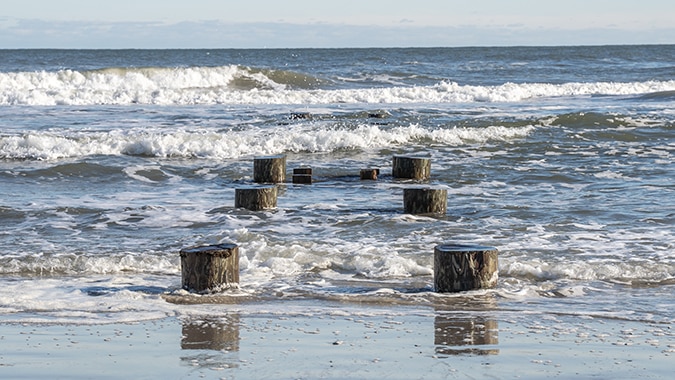
Vice President, Government Affairs
NJBIA offered comments on the implementation of PL. 2018, c. 16, regarding the establishment of a zero emission certificate program for eligible nuclear power plants. New Jersey has the highest electric rates in our grid and the 10th highest in the country. Currently 24 percent of the electric bill is from government imposed taxes and fees. NJBIA has long supported nuclear power and understands that it is an important part of our fuel diversity. But the cost must be balanced with the need for business to remain competitive due New Jersey’s high energy prices.
Please read below for our submitted comments.
On behalf of our member companies that provide more than 1 million jobs in the state and make the New Jersey Business & Industry Association the largest statewide business association in the country, we would like to offer comments on the implementation of PL. 2018, c. 16, regarding the establishment of a zero emission certificate program for eligible nuclear power plants.
The commercial and industrial ratepayer consumes 37 percent of the energy in New Jersey and has a vested interest in the development of energy policy, the implications on competitiveness and ratepayer impact. New Jersey has the highest electric rates in our grid and the 10th highest in the country. Currently 24 percent of the electric bill is from government imposed taxes and fees.
The current law creates a process for the New Jersey Board of Public Utilities (NJBPU) to develop regulations for nuclear power plants that deliver electricity to New Jersey. The law also establishes a tariff of $.004 per kilowatt hour to cover the cost of the zero emission credits (ZEC). Given that nuclear power is the second largest source of electricity generation in the state, NJBIA has long supported nuclear power and understands that it is an important part of our fuel diversity. The cost must be balanced with the need for business to remain competitive due New Jersey’s high energy prices.
Referencing N.J.S.A. 48:3-87.5(a) and (e)(3) and (e)(4), NJBPU should request that entities applying for the ZEC program provide any benefits, subsidies, or tax implications that derive income or direct benefit to the applicant be provided to the Board. They should also include any business forecasts, projections or modeling that help estimate income / loss in the current or future market place.
The applicant must be transparent when giving confidential/non-confidential financial information to the Board that will allow it to make a full evaluation if a Unit is at risk of closure due to financial hardship. This information is critical to the Board when determining if the application should be approved.
The applicant should prove that they have a long-term commitment to nuclear energy production within the state of New Jersey. NJBIA believes that this long term commitment is critical to the success and sustainability of a diverse portfolio.
NJBIA believes the definition of a “nuclear plant”, in the current law, is not limited to New Jersey facilities. Therefore, a Pennsylvania or New York nuclear power plant could also apply for credits arguing it delivers power to the state, helps improve NJ air quality, and could have an adverse impact on the grid. (Section 3e). NJBIA believes that if an entity is approved, the power that is produced must be generated within state borders. As such, any entity that produces power outside of the state would be disqualified.
Due to the provision in Section 3j3c, ratepayers could still pay the tariff even if there are no certified entity found to be eligible under the application process. NJBIA believes that, if there are no nuclear entities certified, the tariff should be eliminated for the three-year period. Ratepayers should not have to pay a tariff only to have it returned at the end of the energy year when it is known that no plants meet the certification.
NJBIA is supportive of an ongoing program evaluation. At the completion of each three-year period, a report of total ZECs traded, amount of ratepayer contributions, and the environmental attributes would help to show the overall program costs and benefits. As solar RECs are currently reported on an ongoing basis, ZECs tracking could help inform the energy marketplace.
Thank you for allowing NJBIA the opportunity to comment on this important issue that impacts all rate payers in the state.
Tony Bawidamann
Vice President
Government Affairs




